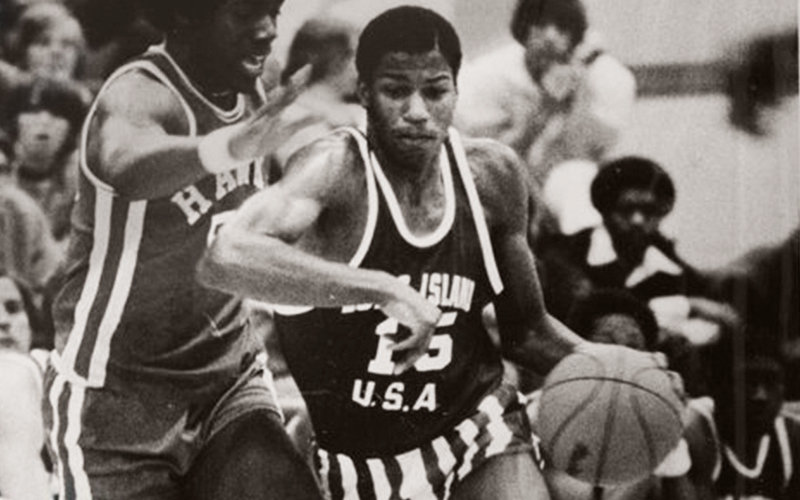
Forty-one years ago, as a high school basketball player, Michael Milligan, lecturer in finance, made a record 76 points in one game.
This wasn’t by accident.
It was by design. And frankly, Milligan wouldn’t have made all those baskets without the help of his teammates. Today, Milligan still uses what he learned in that game to teach students in his classes and programs.
“My coach had the philosophy of sharing the ball and focusing on teamwork even before I ever got to high school,” Milligan recalled. “Instead of passing the ball to a teammate who was in better position, we’d have players trying to make the shot just to get the glory. This was a team sport but we were playing like individuals.
“So he sat us down and told us ‘the law.’ If we would spend the entire season passing, setting a pick, blocking, rebounding — basically playing like a team and not showing off, then during one game, he would pick his top senior to keep shooting — and shooting.
“It was a way of saying thank you for sacrificing for the good of the team,” he explained.
Milligan waited out his turn as he approached his senior year. As a junior, he helped that year’s senior break the record with 70 points. During his senior year, he did what was best for the team. Finally, on the second to last game of his senior year, he was selected to try shooting as much as he wanted. Milligan broke the Long Island, New York, record for most points scored in a single game.
“Man, there were times when I didn’t even go down to the end of the court with my brothers,” he laughed. “My arms got tired from all that shooting.” Still, his teammates continued to pass him the ball so he could take, and make, the shots.
“I use these lessons when I’m working with students,” he said. “We do a lot of team exercises, which nobody likes. But I tell them, ‘When you graduate, you’re going to have to work with teams so you might as well learn to be effective.’
“As in sports, you have to take risks but they should be calculated ones,” he said. “You work with your team, you develop your skills, and by learning from one another, you become stronger.
“Too many times, I’ll see someone showboating,” he said. “They build themselves up at the expense of others. That’s not the way to achieve success. As I tell students, you can usually tell the person who’s doing the work even if they’re not talking about themselves. Most good leaders are humble and quick to give credit to others. That’s teamwork. It’s what WE did, not what I did.
“You also want to focus on the strengths of each team member,” he continued. “Play to those strengths. Use people where they are strongest.
“If the team is doing well, the team gets noticed,” he said. “Stars will stand out. Watch a student or business team at work. You’ll be able to figure who is doing the work. Here’s the trick. Stars work with the team. The better you make the team, the better you are and, ironically, the most you’ll be noticed.
“It doesn’t dim your brightness if you forsake the shot because someone else is in a better position. On the court, you learn to sacrifice for the sake of the team. In business, the goal isn’t to prove you’re the smartest person in the room. The goal is to beat your opponent, get the job, convince the client. And you do that through teamwork.”